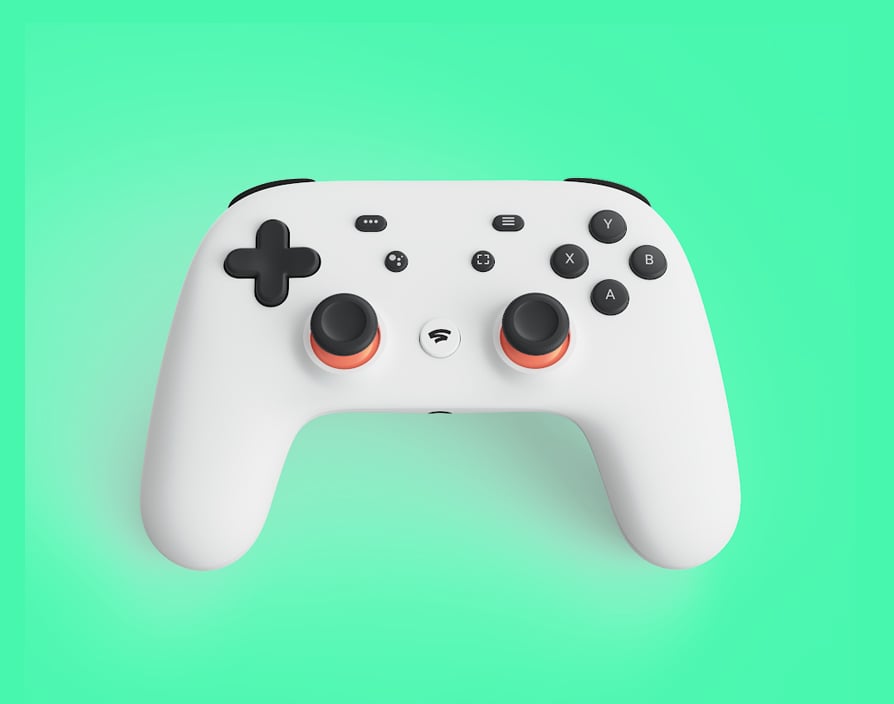People are unsure about Google Stadia. The new video game platform from the tech titan was announced on Tuesday March 19 and since then industry experts have debated whether it’s the best thing to affect the sector since Super Mario ate his first mushroom or the worst thing since internet connectivity encouraged game developers to ship half-assed products hoping to patch them later.
Although, Phil Harrison, vice president and general manager of Google, is clear where he stands. “[Stadia] will free players from the limitations of traditional consoles and PCs,” he said.
It’s easy to see where he’s coming from. For starters, Google Stadia is getting rid of physical discs and even the need of downloading a game altogether. Instead, players can theoretically start streaming a game within seconds in a similar way that videos are streamed on YouTube. All you’ll need is a TV, desktop, tablet, laptop or even a smartphone with Google’s Chrome web browser.
But that’s not what makes Stadia potentially revolutionising. It’s not even the promise of delivering stunning resolutions of up to 4K and 60 frames per second. No, instead it’s the platform’s promise of enabling players to view a game being played on YouTube and instantly deciding to start playing the game from where the person in the video was. All it takes is a tap on the Stadia controller, which was also announced at the event, and off they go.
And some industry experts are understandably excited. “I have never witnessed a presentation as game-changing as Google Stadia’s reveal at GDC,” said James Draper, CEO at Bidstack, the in-game advertising platform, when speaking with Elite Business. “It reminded me of the launch of the iPhone, it was simply that level of wow factor.” Citing the ability for players to see a game being played on YouTube and then start playing themselves within seconds, he added: “I believe that interactive entertainment and gaming as a whole, will change considerably as a result of Google Stadia. Things that have never before been possible will now come to life – 1,000-plus players in one match and environments that are physically realistic i.e. destructible buildings.”
Others welcomed the increased competition in the industry. “Developers no longer have to limit themselves to specific hardware platforms while consumers can choose the games and services that best fit their budget and needs,” Simon Spaull, managing director EMEA at AppLovin, the independent mobile games and growth platform, told Elite Business. “For mobile game developers, this presents the opportunity to create games for a more diversified audience than ever before.”
However, not everyone shared the optimism. “With today’s news, indie game developers in particular, will be put under increasingly pressure to create games for variable pay in shorter time frames,” said Patrick Weekers, growth director at Utomik, the subscription-based gaming service. “Developing a game is an art, as well as a science – this kind of pressure and expectation could cause quality plummet in the UK and mean big technology companies to look abroad for greater ROI.” While Google has stated that over 100 developers have already got access to the Stadia development kit, Weekers doesn’t think it will be enough to save small studios. “Whereas big companies may be able to cope with developing games within another framework, indie game developers are going to struggle with being asked to add to [an] already long list,” he told Elite Business.
Another issue people noted had to do with connectivity. With 5G still being on the horizon, many players already struggle with dodgy wifi which makes streaming games a bit of a challenge even for a tech titan with as deep pockets like Google. “Regardless how much money you have, streaming technology still doesn’t hold a candle to downloads,” argued Weekers. “Put simply, the technology for a fully streamed solution just isn’t there yet. 5G networks are still being tested and the vast majority of consumers will not be able to use this technology for a long time. That barrier simply isn’t something you can punch through with capital. It can only be circumvented with a download-based system that functions great with fast and slow connections and still lets you play games as soon as possible.”
He’s not alone. Since the announcement, the internet has been flooded with people making fun of how bad lagging could put a stop to Google’s streaming aspirations.
Or as Serkan Koto, CEO of Kantan Games, the Tokyo-based games industry consultancy firm, put in a tweet: “Stadia looks very ambitious, but how much is the controller, how much is the service, what games do we get, how will ownership work and how much does it cost to develop, publish and run games on Stadia?”
Google’s new gaming platform certainly seems to spark opinions across the spectrum but it’s hard to not agree with Jospeh Knowles, comms director at Hatch, a mobile game streaming platform, who simply stated when asked about his first opinions: “Stadia looks cool.” ![]()
Share via:



















































